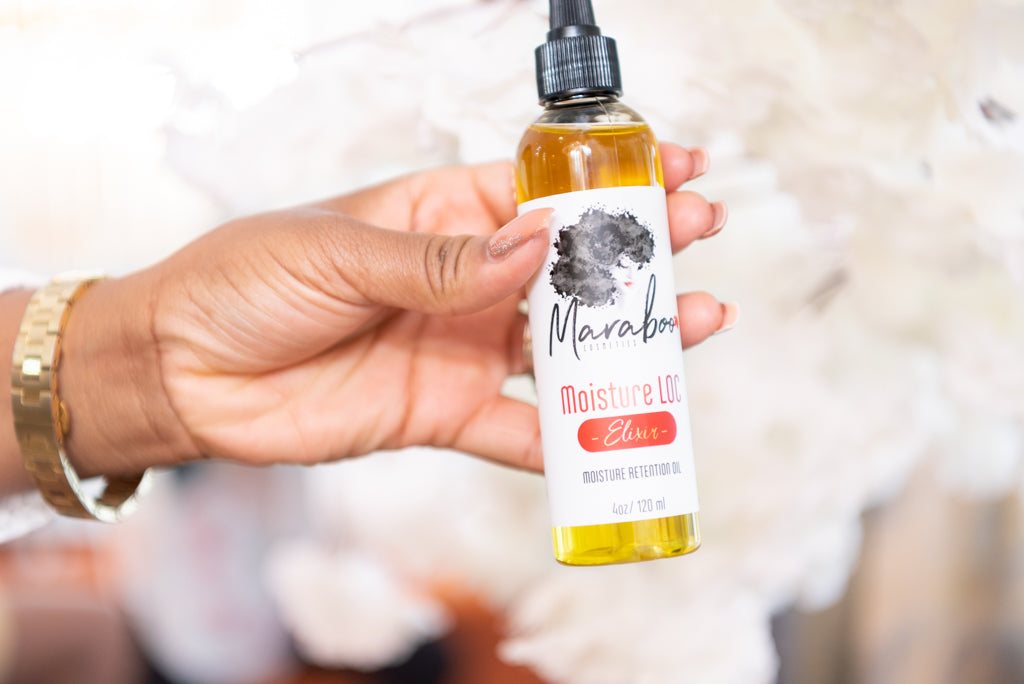In today’s fast-paced world, stress, anxiety, and emotional struggles have become all too common. While most people understand the impact of mental health on overall well-being, fewer recognize its direct connection to hair health. The reality is that our hair is often a reflection of our internal state—physically, emotionally, and mentally.
As a Mental Health Registered Nurse and the CEO of Maraboo Cosmetics LLC, I’ve seen firsthand how mental health influences hair health. Whether you’re dealing with stress-related hair loss, scalp issues, or slow hair growth, understanding this connection can empower you to make healthier choices for both your mind and your hair.
How Mental Health Affects Hair Health
1. Stress and Hair Loss (Telogen Effluvium)
One of the most common ways mental health impacts hair is through stress-induced hair loss, known as telogen effluvium. High stress levels push hair follicles into a resting phase, leading to excessive shedding. This can happen after a traumatic event, prolonged anxiety, or even chronic work stress. The good news? This type of hair loss is usually temporary and can be reversed once stress levels are managed.
2. Anxiety and Scalp Conditions
Anxiety can trigger conditions like seborrheic dermatitis (dandruff) or psoriasis, leading to itchy, flaky, or inflamed scalp. Stress affects the immune system, which can cause flare-ups in these conditions. Additionally, some people with anxiety may develop trichotillomania, a compulsive urge to pull out their hair as a coping mechanism.
3. Depression and Poor Hair Growth
Depression can lead to a lack of self-care, poor nutrition, and hormonal imbalances—all of which affect hair growth. Many people experiencing depression may not have the energy or motivation to maintain a hair care routine, leading to breakage, dullness, and even excessive shedding.
4. Hormonal Imbalances and Hair Thinning
Stress and mental health issues can disrupt hormone levels, particularly cortisol (the stress hormone). High cortisol levels can impact estrogen, progesterone, and thyroid hormones, which play a crucial role in hair growth. Imbalances in these hormones often lead to thinning hair, excessive shedding, or slow hair growth.
How to Protect Your Hair Through Mental Wellness
1. Manage Stress Effectively
- Practice mindfulness – Activities like meditation, deep breathing, and journaling can help reduce stress.
- Exercise regularly – Movement releases endorphins, which combat stress and improve circulation to the scalp.
- Prioritize sleep – Poor sleep increases cortisol levels, which can impact hair health. Aim for 7-9 hours of quality sleep per night.
2. Nourish Your Hair from Within
- Eat a balanced diet – Include iron, biotin, zinc, and omega-3 fatty acids to support hair growth.
- Stay hydrated – Dehydration can lead to dry, brittle hair and a flaky scalp.
- Limit caffeine and sugar – Excessive caffeine and sugar can spike cortisol levels and contribute to inflammation.
3. Establish a Self-Care Hair Routine
- Use gentle, nourishing products – Harsh chemicals can weaken hair over time. Opt for natural, moisturizing products like those in the Maraboo Cosmetics line.
- Massage your scalp – This increases blood flow and promotes healthy hair follicles.
- Avoid excessive heat and styling – Overuse of heat tools can weaken stressed-out hair even further.
4. Seek Support When Needed
- Talk to a therapist or counselor – If stress, anxiety, or depression is overwhelming, seeking professional support can improve overall well-being, including hair health.
- Join a community – Connecting with others who understand your struggles can provide motivation and emotional support.
Final Thoughts
Your hair is more than just a beauty statement—it’s a reflection of your inner health. If you’re experiencing hair loss, scalp issues, or dull, lifeless strands, consider looking beyond external factors and examining your mental and emotional well-being. By taking care of your mind, you naturally support the health of your hair.
At Maraboo Cosmetics LLC, our mission is to empower women through healthy habits, healthy hair, and beauty. Prioritizing your mental health is not just about feeling better—it’s about thriving from the inside out.
Have you noticed a connection between your stress levels and your hair health? Share your experiences in the comments below!





